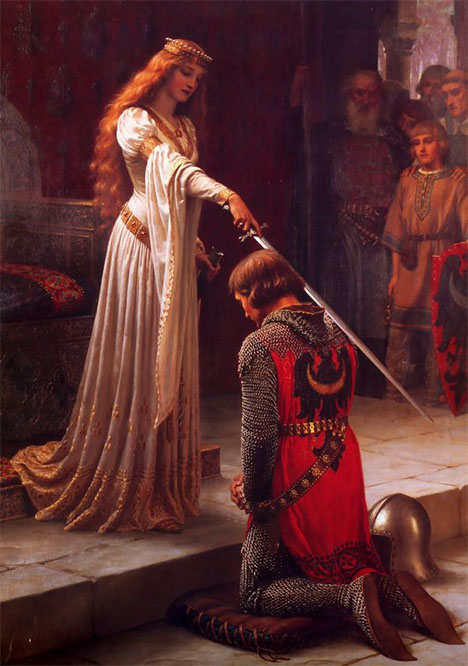Exposed to the Elements
or The Time Appointed by the Father
The Bible is a musical book. It plays the same tune over and over again. However, much of modern Bible scholarship refuses to be caught up in the flow, instead limiting its practice to the particulars. Instead of recognising themes and motifs, it boils down to ”Look, there’s another B flat.” The historical-grammatical method is an instrument which refuses to submit to the music for fear it might get carried away.
Peter Leithart follows the tune concerning the meaning of stoicheia. He has not only identified a B flat, but how it is used in the literary composition – its significance in the Covenant tune as it is presented to us by God, and as it plays out in history. I’ll quote his post, and then I will allow the same tune to carry him somewhere he does not want to go.
There has been a great deal of debate about what Paul means in his various references to ta stoicheia tou kosmou (the elementary principles of the world). Are the stoichea teachings, practices, beings, stars?
This line of reflection might help to resolve that debate: Whatever stoicheia refers to, it is something that people are “under” (hupo, Galatians 4:3). Stoicheia establishes a hierarchy, where the stoicheia are on top and people are on bottom.
If Paul uses stoicheia to refer to beings, then he is saying that people in the old covenant were subordinated to beings. If stoicheia are teachings or practices, again it implies that people are subordinate to those teachings or practices. To say that people are “under stoicheia” is parallel to saying that they are “lower than angels,” but temporarily: “for a little while lower” (Hebrews 2:7, 9). Stoicheia are for people “under,” and when Christ takes our humanity “over” into heavenly places, stoicheic subordination must end.
This can’t be accomplished through Torah because, as Paul insists, Torah itself comes through angels. Torah is a system designed for people “under,” and thus by its very nature it cannot elevate them.
www.leithart.com Lower Than Stoicheia
For more discussion on the stoicheia, both the Jewish variety and the pagan taboos, there is a helpful article here. But my purpose is take Dr Leithart’s observation concerning “below” and “above” right back to Genesis 2 and 3.
In Genesis 2, Adam is “under the sword.” Before the construction of Eve, for whom he will be responsible, he is given a single law. He is cut open for the sake of his bride. When his faith in God’s character is tested, his sin is atoned for, covered, yet both he, his wife and his children remain under the angelic sword. But what was God’s intention? That Adam, through faithful obedience, be the one who wielded that sword as God’s representative. Adam had failed to keep, that is, to guard, the Sanctuary. Due to his failure, rather than being initiated as the guardian, he was still under guardians. He was, morally speaking, still a child.
Dr Leithart refers to Galatians 4:3. What does Paul say in 4:2, and, more importantly, what is the tune?
(Sabbath – A new Law)
(Passover – Under the sword of a guardian)
(Firstfruits – Ishmael and Isaac)
(Pentecost – Rulers humbled)
(Trumpets – Angelic hosts)
(Atonement – Bears the sword as a guardian)
(Booths – Ministers shelter to the nations) [1]
Paul’s text consistently follows the Covenant tune, recapitulating it in manifold ways, like turning a diamond so that every facet catches the light. The result of this process is the maturity brought about by Testing after the delegation of Covenant authority. We see this pattern not only in Eden, but also in Israel. You might notice that the Festal Calendar is appended to each step. If we append the first seven books of the Bible to each step, we see the significance of the process in another important story. In Egypt, Israel was under the sword of Pharaoh, and then under the angelic sword. Israel’s “time appointed” was the conquest of Jericho. In that case, the “flaming sword” of the Lord’s host was delegated not to nature (the plagues) but to a new culture, the armies of Israel.
My point, and one which my paedobaptist brothers keep dodging because they don’t have an answer, is how this pattern pertains to the difference between the Covenant community signified by circumcision, and the New Covenant community signified by baptism. James Jordan claims (and I believe, rightly) that the works of Christ are not imputed to us, but rather His maturity. Our eyes are opened by the Spirit to the reality of things, which includes the good character of our Father in heaven. Yet, Jordan is willing to “delegate” this in baptism to unknowing infants.
Every baptism certainly has a degree of “hupo” in it. One is under the water whether sprinkled or submerged. But the key here is submission to authority. The “under” in credo baptism is like the submission displayed in a knighthood. One submits to the royal sword that one might bear it on behalf of the monarch. The movement from “below” to “above” is built into the rite.
This is exactly what was intended in Eden. If Adam was a child before God, God would make Adam a man on the earth, with a dominion blessed by a fruitful Land and a fruitful womb. Thus, when Israel sinned, both the Land and the womb were cursed. God put the nation back under the sword. All the talk about children being “model disciples” overlooks the difference between heaven and earth, between the Fatherhood of God and the fatherhood of Adam. It is such a simple distinction, but I’ve found that paedobaptism must be protected at all costs, regardless of how silly are the statements required to defend it. Jordan’s claim that “every baptism is an infant baptism” is the perfect example of this ridiculous conflation. Using texts that speak of the fatherhood of Abraham, the sign of “the children of Israel,” to manufacture an indiscriminate Fatherhood for babies in baptism makes no sense in the light of the rest of the Bible. God is “our maker, defender, redeemer and friend” in that order (James 2:23). Israel was God’s “firstborn” only corporately, a role fulfilled in the incarnation of Christ. Even Christ Himself was baptised as a sign of the pleasure of the Father in heaven, not his father on earth. It began His preaching ministry.
The difference between circumcision and baptism is that baptism makes one an angel, a guardian, a minister of the Law of Christ, the eu-angel-ion. All Israelite males were circumcised outside Jericho, but were the infants of Israel involved in the slaying of “all flesh” in Jericho? No. That is the difference, in type, between circumcision and baptism.
Paedobaptism is a rite carried out at the discretion of earthly fathers (or parents/guardians). The end of the Old Covenant, of circumcision, moved the Covenant identity from the fatherhood of Abraham to the Fatherhood of God. When it comes to baptism, this is not at the discretion of an earthly father because it is not a witness to an earthly birth. Paedobaptism perverts the New Covenant rite of maturity into a new stoicheia, putting Christian babies under angelic and human guardians. Worse, it leaves no rite for the guardians, those who are called to live and die for Christ.
This sheds light on the purpose of Church discipline. When a Christian will not repent of sin, the one who was once authorised to bear the sword of the Gospel is put back under that sword, that call to repent and believe.
I hope you can understand why I believe paedobaptism is such a grave misrepresentation not only of the Gospel, but of all Covenant history. So often, “Covenant” and “Covenant community” are invoked to defend this practice, but the practice itself is a process, both personally and corporately.
If your baptism was of the “infant” variety, it merely signifies you as a child of the earth, offspring of Adam, babies in the Nile, not a child of heaven, the offspring of Christ, Captain of the Lord’s hosts, one given authority to “bind and loose” at the time appointed by the Father. Until you willingly represent God, you are indistinguishable from a slave.
Next Post: “Children of Heaven.”
_____________________________________
[1] Chart from The Shape of Galatians, p. 133.



























